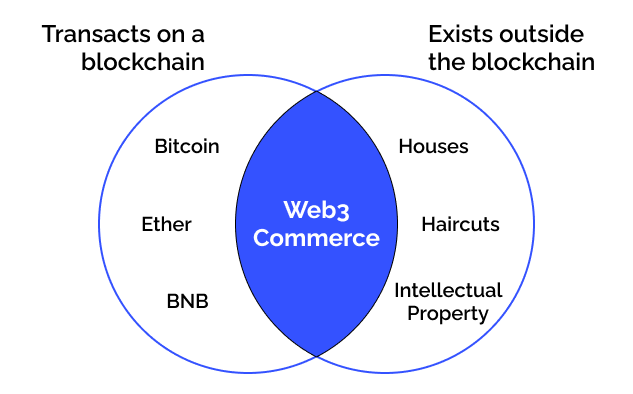Web3 commerce (sometimes written as Web3Commerce with no space) is the exchange of real-world assets on a blockchain. By real-world assets, we mean products, items or services that have value outside of the blockchain, and use blockchain to improve trust, transparency and coordination between multiple businesses and customers.

Examples of Web3 Commerce
— Exchanging stablecoins for dollars
— Buying pizza using Bitcoin
— Buying and tracing food or carbon credits on a public blockchain
— Tracking supply chain for products on a private blockchain
Things that are NOT Web3 Commerce
— Trading Bitcoin for Ethereum
— Launching a new token or NFT that is not backed by a real-world asset
— Algorithmic stablecoins backed by cryptocurrencies
— DeFi lending
— Staking tokens in a validation protocol
Where did the term “Web3 Commerce” come from?
I first used the term “Web3 commerce” in 2020 because businesses were expanding their view of blockchain and beginning to pursue different types of projects on private and public blockchains.
At the time, people had been using the term “Enterprise Blockchain” to refer to this kind of real-world asset exchange and supply-chain use case. But this term was terribly confusing because it implies use of a private blockchain. A new word was needed that separated these business blockchain applications from the type of blockchain network they ran on, and hence “Web3 commerce” was born.
Since its inception, use of the term has spread significantly, to the point where people I have just met will use the term in conversation with me totally unprompted. Unfortunately, the meaning of the term seems to have drifted from its original definition. I hope this article can help clear up some of the confusion.





